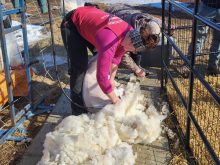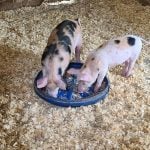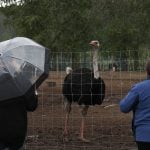The Alberta Cattle Commission has agreed to establish a special council dealing with the
feeding industry.
Feedlot operators in southern Alberta say they are challenged almost daily and are asking
for help when dealing with media criticism and answering questions about air and water
quality, regulations and feedlot expansion.
“We need some help,” said feedlot operator and commission delegate Rick Paskal. “Please,
let’s work together here.”
While some delegates worried about setting up a special committee to deal with a specific
Read Also

Charges laid after cattle theft
Saskatchewan RCMP lay two charges against a man after six cattle went missing.
sector with a set budget, most agreed the council proposal has merit.
“This is not a precedent,” past commission chair Jim Turner said.
“We should be a flexible industry so we can bring everybody’s concerns to the table. If it
doesn’t work we can certainly look at it next year and change it.”
The council could receive up to $200,000 from the commission’s budget.
The 30-year-old cattle commission deals with a number of issues. The industry and its
issues have changed over the years. Various committees have been set up and disbanded to
deal with issues of the day.
Alberta feedlots have evolved into a major sector, becoming the fifth largest feeding area in
North America. Alberta finished 2.4 million head last year.
The council’s structure is yet to be determined, but it will include feeder sector
representatives from each of the commission’s nine zones.
Len Vogelaar of Pincher Creek has been appointed chair.
The commission and the Alberta Cattle Feeders Association have previously worked as two
separate entities.
Paskal said the two groups often duplicate services.
Feeders also feel overwhelmed by the high proportion of cow-calf producers who sit on the
commission.
“They have a lot of concerns that they make significant contributions to the funding of this
organization and they feel they are not adequately represented,” said Scott Van’t Land of
Coalhurst.

















